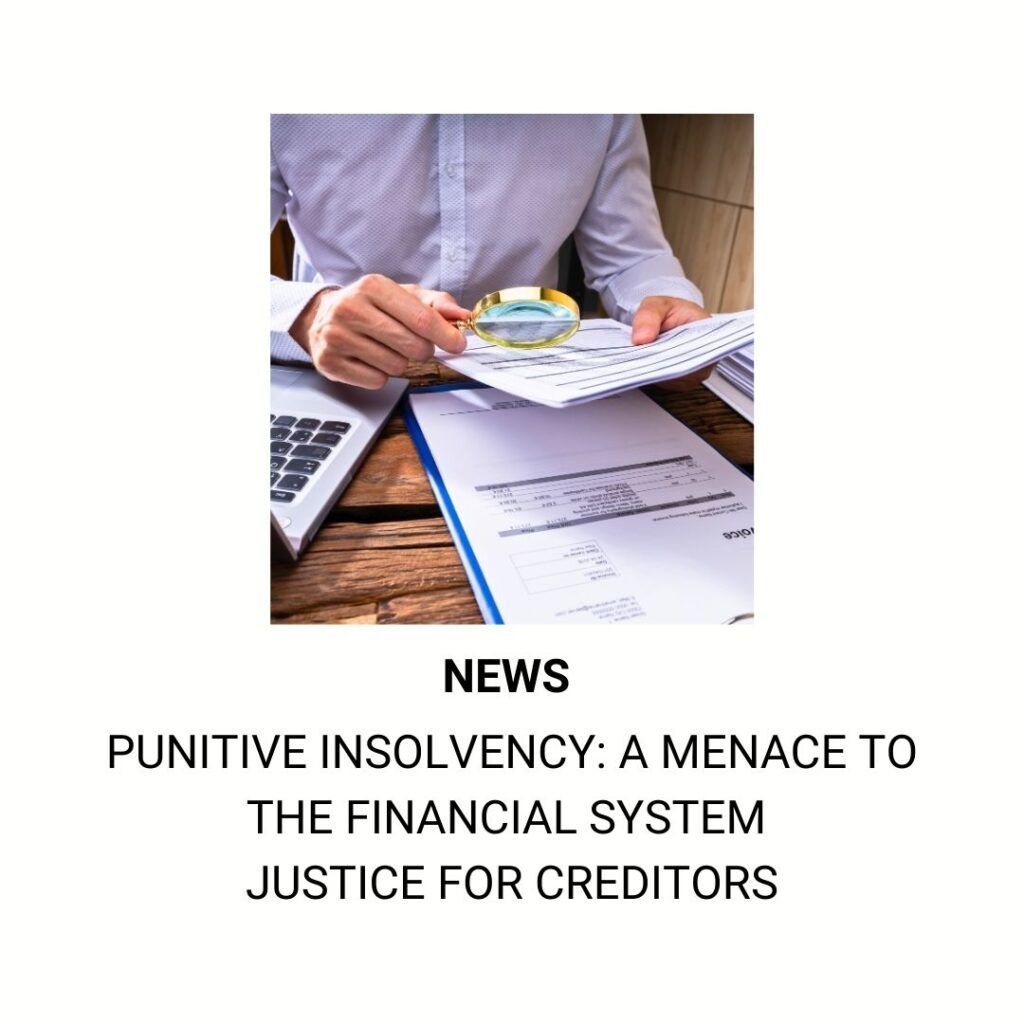Punishable Insolvency: Definition, Legal Framework, and Prevention

Punishable insolvency is a criminal strategy used to evade financial responsibilities, causing harm to creditors and undermining the socioeconomic order. This article explains what constitutes punishable insolvency, how it is regulated, and why it is important to prevent and prosecute it.
What is Punishable Insolvency?.
Punishable insolvency involves hiding assets, making deceptive transfers, or simulating credits to create a fictitious insolvency. This practice aims to elude the responsibility of paying debts, thus harming creditors.
How is Punishable Insolvency Regulated in the Criminal Code?.
Punishable insolvency is regulated in Articles 259 to 261 bis of the Criminal Code, under crimes against property and the socioeconomic order. The protected legal asset is the right of creditors to satisfy their claims with the debtor’s assets. This right is recognized in Article 1911 of the Civil Code, which includes all the debtor’s assets, both present and future. Additionally, the proper functioning of the credit system is also protected.
Key Elements of Punishable Insolvency.
The crime of punishable insolvency requires the existence of debt, intention to avoid payment, definitive insolvency, and damage to the creditor. It is important to note that the crime does not consist of the non-payment of the debt but rather the actions or omissions that harm the bankruptcy estate or create a false image of the debtor’s solvency.
Typical Conduct Constituting Punishable Insolvency.
Typical conduct includes any action or omission that damages the bankruptcy estate or creates a false image of the debtor’s solvency.
The Penal Code specifies several actions that constitute this crime, such as:
- Concealment, damage, or destruction of assets included in the bankruptcy estate.
- Performing disproportionate acts of disposition without economic or business justification.
- Selling assets or providing services below cost without justification.
- Simulating third-party credits or recognizing fictitious credits.
- Engaging in speculative transactions without economic justification.
- Failing to keep proper accounting records or maintaining double accounting.
- Destroying or altering accounting books to obscure the financial situation.
- Concealing, destroying, or altering mandatory documentation.
- Preparing annual accounts or accounting books contrary to regulations.
- Any serious breach of diligence in managing economic affairs that diminishes the debtor’s assets or conceals their true financial situation.
Legal Proceedings for Punishable Insolvency.
Prosecution of punishable insolvency does not require waiting for the conclusion of a commercial or civil process. This crime is pursued to protect the financial system and ensure justice for creditors. It can be prosecuted as soon as the actions or omissions that constitute the crime are identified.
Importance of Preventing and Prosecuting Punishable Insolvency.
Preventing and prosecuting punishable insolvency is crucial because it undermines confidence in the economic system and compromises legal security. Maintaining fairness and transparency in business relationships is essential for a healthy economic environment.
We Are Specialists In:.
- Criminal law
- Family law
- Real estate law
Contact
Telephone: +34 951 20 45 95
Email: info@toscanolex.es
Website: www.toscanolex.es
Instagram: www.instagram.com/toscanolex
Search
Categories
Recent articles
- Inheritance with Foreign Clients: How to Manage an International Inheritance in Spain
- Express Divorce: Everything You Need to Know to Get Your Divorce in One Week
- Usucapion: Acquiring Property Rights Through Continuous Possession
- Holiday Rental Regulations in Andalusia
- Burdens of Marriage and Differences in Marital Regime







